As fellow travel enthusiasts, we know the thrill of hitting the open road with a home on wheels. But before we dive into the adventures, there’s one crucial component to consider: the travel trailer frame. Whether you’re a seasoned nomad or a first-time buyer, understanding the different types of frames and their benefits can make a world of difference in your travels.
What is a Travel Trailer Frame?
A travel trailer frame is the structure that supports the entire vehicle. It’s built to handle the weight of the trailer and all its contents while providing a stable platform for travel. The frame’s design, material, and construction significantly influence the overall performance, safety, and durability of your travel trailer.
Types of Travel Trailer Frames
Choosing the right frame is crucial for your travel experience. Here are the main types of travel trailer frames:
1. Steel Frames
Steel frames are known for their strength and durability. They can withstand significant stress and are resistant to damage from rocks and debris while hitting the road.
- Pros: Highly durable, excellent structural integrity, and good resistance to damage.
- Cons: Heavier than other materials, leading to reduced fuel efficiency.
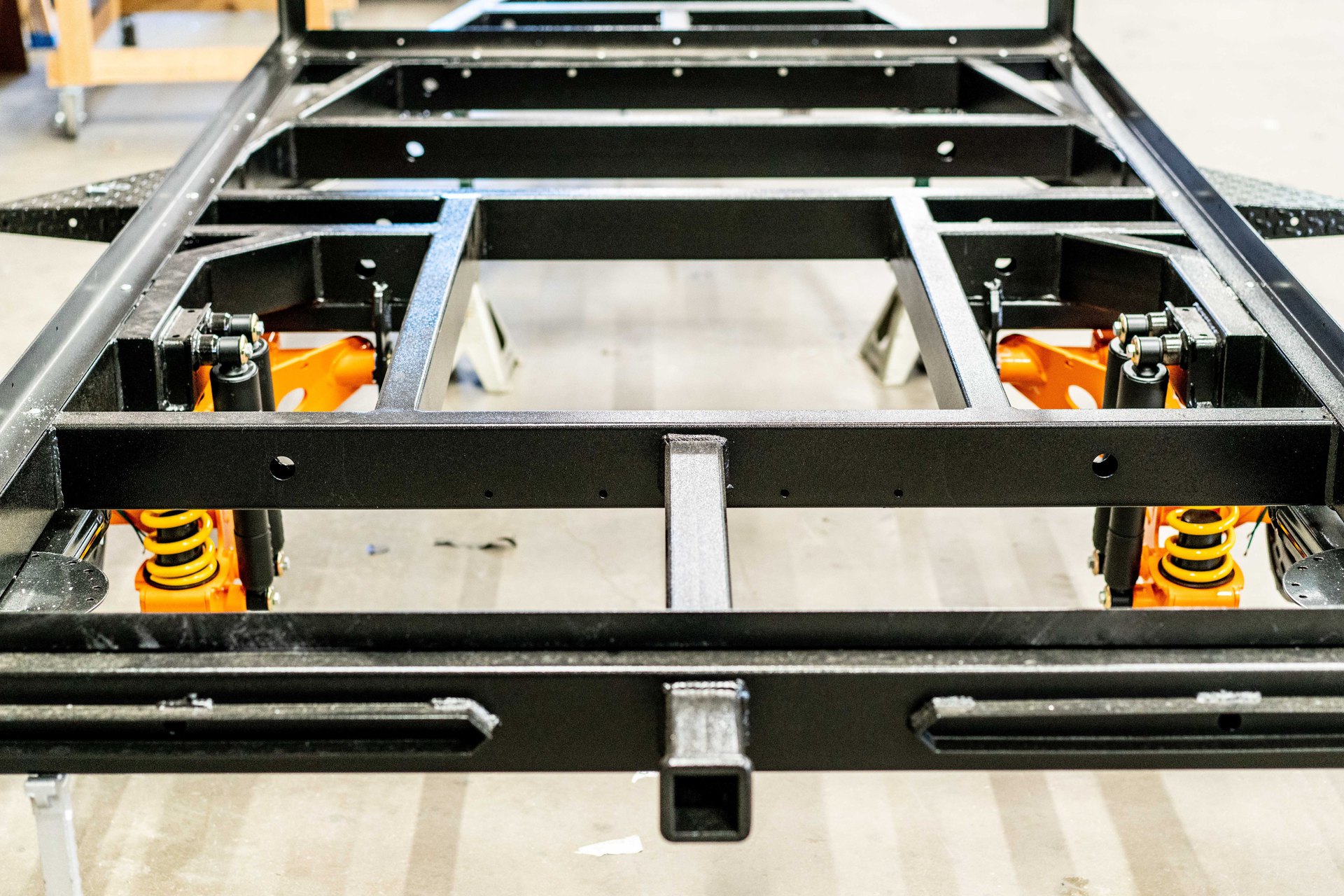
2. Aluminum Frames
Aluminum frames are lightweight and resistant to rust, making them a popular choice among travel trailer manufacturers.
- Pros: Lightweight, rust-resistant, and good for fuel economy.
- Cons: Generally, they are not as strong as steel frames and may require additional reinforcement.
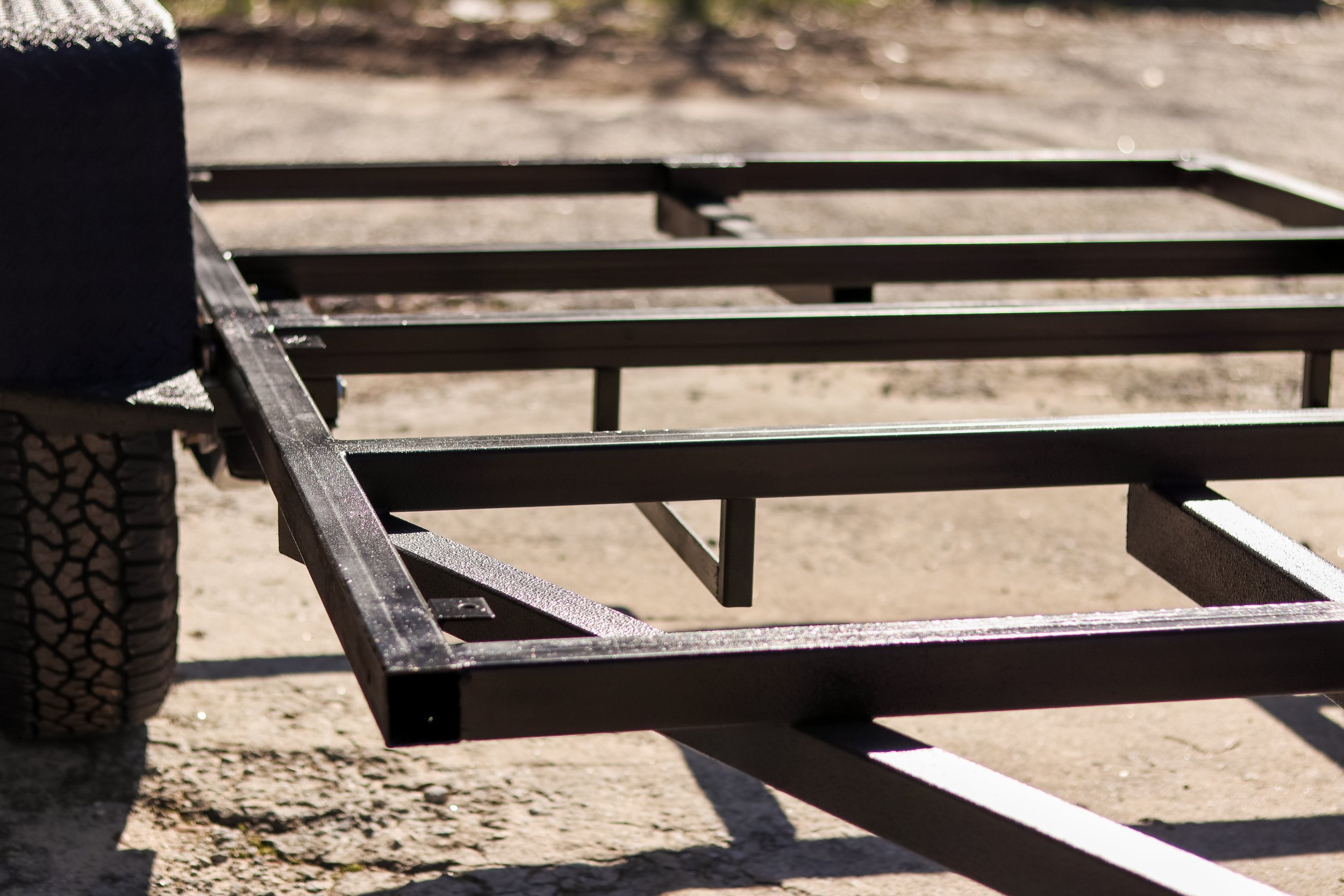
3. Wood Frames
Wood frames are typically used in older models. They provide a good balance of weight and sturdiness, but their susceptibility to rot and insect damage is a significant drawback.
- Pros: Good insulation properties, easy to work with, and cost-effective.
- Cons: Prone to rot, pests, and may require more maintenance.
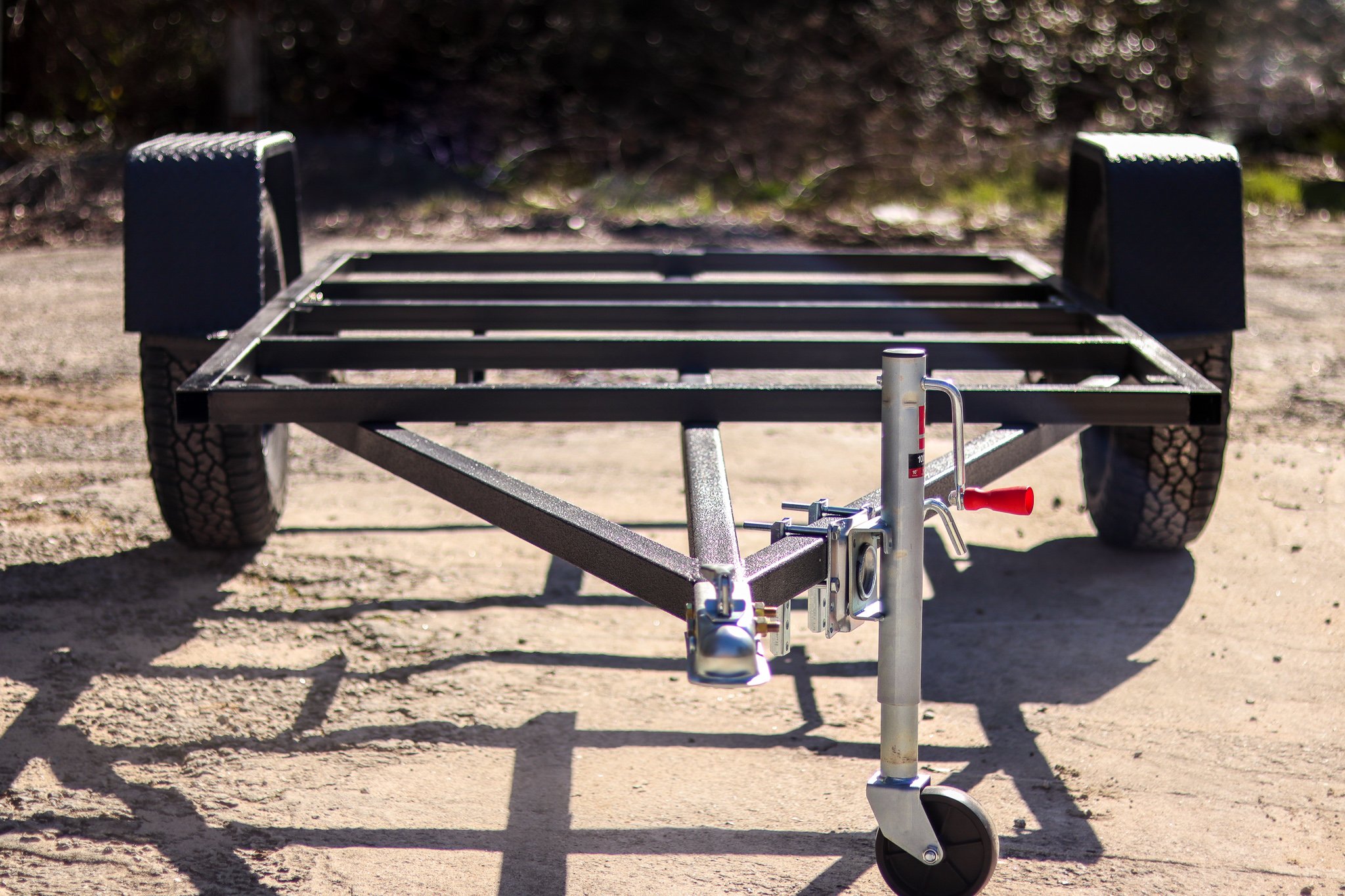
Frame Construction Methods
Understanding how frames are constructed helps in determining their strength and longevity. Here are the primary construction methods:
1. Conventional Construction
This method involves the use of a frame with walls built around it. It’s the most common construction type found in travel trailers.
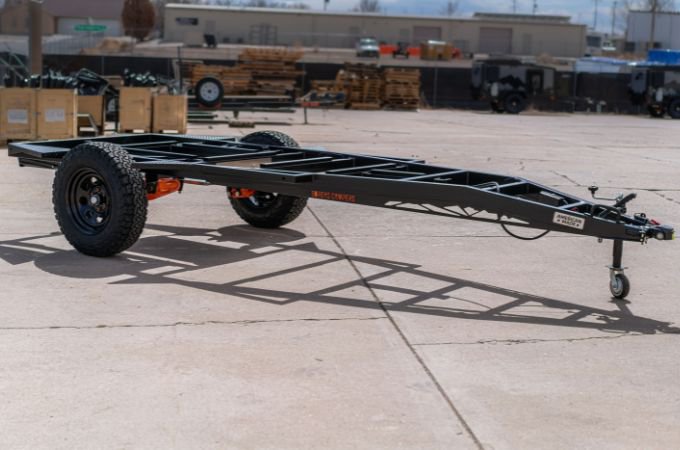
Advantages:
- Solid structure and long-lasting.
- Easy to repair and upgrade.
2. Monocoque Construction
Monocoque construction integrates the frame into the trailer’s body, providing better rigidity and reduced weight.
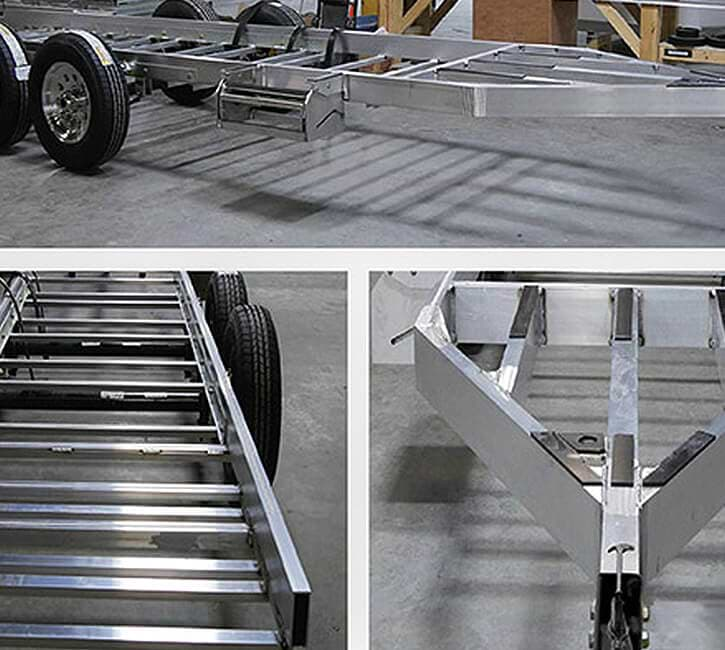
Advantages:
- Improved aerodynamics.
- Less weight for better fuel efficiency.
Choosing the Right Travel Trailer Frame for Your Needs
When selecting a travel trailer frame, consider your travel style, weight capacity needs, and budget. Here are some questions to ask yourself:

- Do you prioritize weight savings for fuel economy?
- What type of terrain will you typically encounter?
- How important is durability versus cost?
Comparing the Best Travel Trailer Frames on the Market
To help you make an informed decision, here’s a look at some highly rated travel trailers available online, along with their frame types.
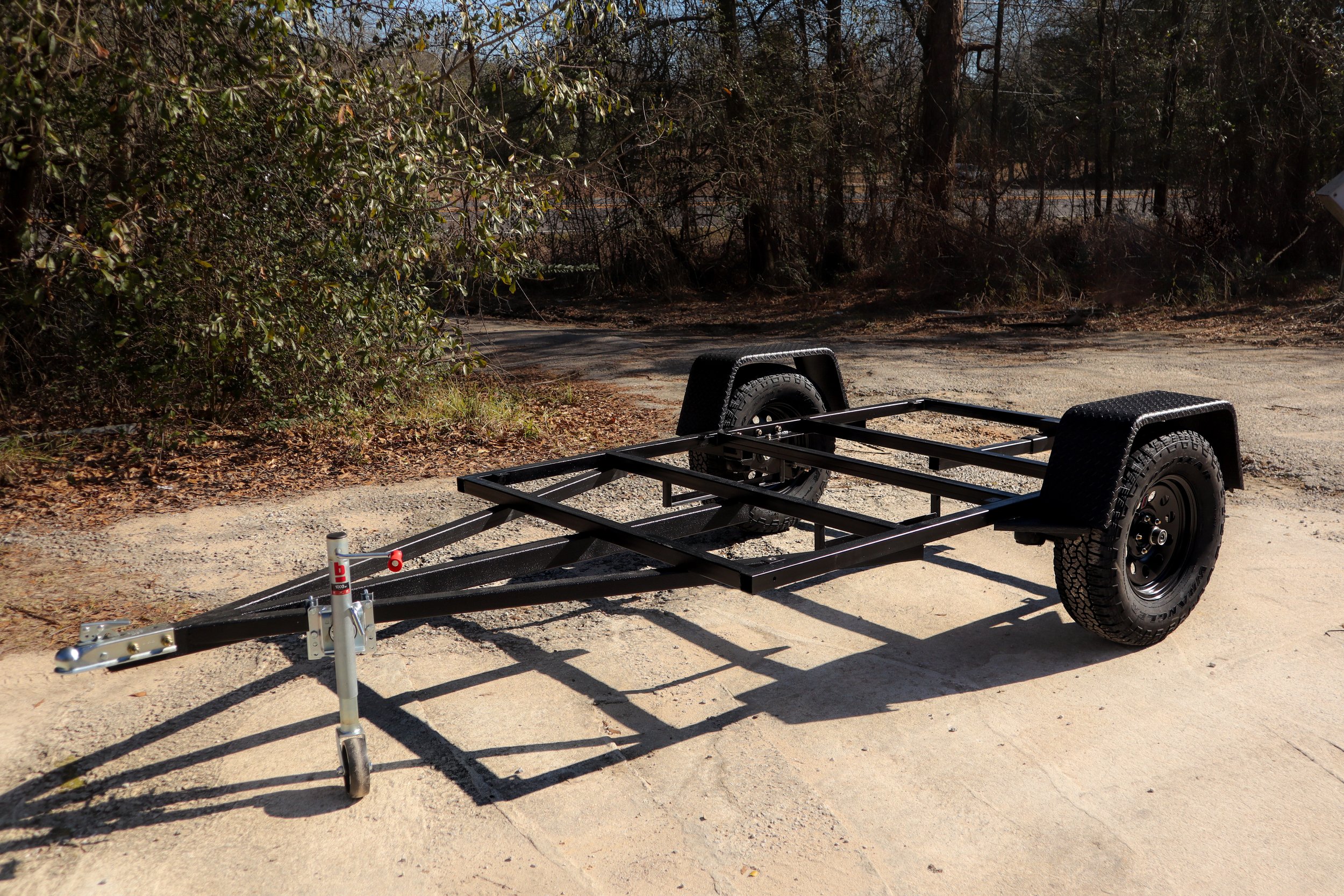
| Travel Trailer | Frame Type | Price Range | User Rating | Link |
|---|---|---|---|---|
| Jayco Jay Flight | Aluminum | $20,000 – $30,000 | 4.8/5 | View Details |
| Airstream Flying Cloud | Aluminum | $35,000 – $60,000 | 4.9/5 | View Details |
| Forest River Wolf Pup | Wood | $15,000 – $25,000 | 4.6/5 | View Details |
Personal Travel Experiences with Travel Trailer Frames
I fondly remember my first road trip in a travel trailer, equipped with an aluminum frame. We traveled across the stunning landscapes of the Pacific Northwest, and I appreciated how lightweight the trailer felt. It allowed us to navigate narrow mountain roads and still enjoy a smooth ride. On the flip side, a friend of mine chose a heavier steel frame for their journey through the rugged terrains of Colorado. They faced some challenges with fuel consumption, but the added stability was worth it for them.
Pros and Cons of Different Frame Types
Understanding the advantages and disadvantages of each frame type can help you make an informed decision.
Steel Frame Pros and Cons
- Pros: Sturdy, long-lasting, and provides excellent protection.
- Cons: Heavier and can lead to higher fuel costs.
Aluminum Frame Pros and Cons
- Pros: Lightweight, rust-resistant, and great for frequent travelers.
- Cons: Less durable than steel frames.
Wood Frame Pros and Cons
- Pros: Inexpensive and easy to modify.
- Cons: Risk of rot and damage from insects.
Travel Tips for First-Time Travel Trailer Owners
- Familiarize yourself with your trailer’s weight and towing requirements before setting out.
- Invest in a quality weight distribution hitch to enhance stability.
- Check all systems (water, electric, etc.) in advance to avoid issues on the road.
- Plan your route and have backup locations in mind, especially in peak travel seasons.
Popular Travel Destinations for Trailer Enthusiasts
Some destinations are just perfect for exploring in a travel trailer. Here are my top picks:
1. Yellowstone National Park, Wyoming
The natural beauty of Yellowstone beckons countless travelers. With its vast campgrounds and stunning geysers, it’s an ideal spot for a travel trailer adventure.
2. Yosemite National Park, California
This park’s spectacular granite cliffs and waterfalls are a paradise for nature lovers. Several campgrounds cater to travel trailers, ensuring a memorable stay.
3. The Florida Keys
For those seeking a warm getaway, the Florida Keys offer beautiful coastal scenery. Many RV parks provide scenic views and quick access to beaches.
Frequently Asked Questions (FAQs)
What is the best material for a travel trailer frame?
The best frame material depends on your needs. Steel is very sturdy, while aluminum is lightweight and rust-resistant. Consider your travel style and destination when choosing.
How much weight can a travel trailer frame hold?
The weight capacity varies based on the frame type and construction. Always refer to the manufacturer’s specifications for exact weight limits.
Are travel trailers safe for long trips?
Yes, travel trailers can be very safe for long trips if properly maintained and equipped. Always perform regular safety checks before embarking on your journey.
How do I maintain a travel trailer frame?
Regular inspections for rust, damage, or wear are critical. Ensure proper sealing and maintenance of joints to avoid moisture ingress.
Conclusion
Understanding travel trailer frames is essential for anyone looking to invest in a travel trailer or upgrade their existing setup. From the various types of frames available to personal experiences on the road, it’s clear that the frame plays a vital role in your adventure. As you plan your next trip, remember to choose a frame that fits your travel style and adventure needs. Happy travels!